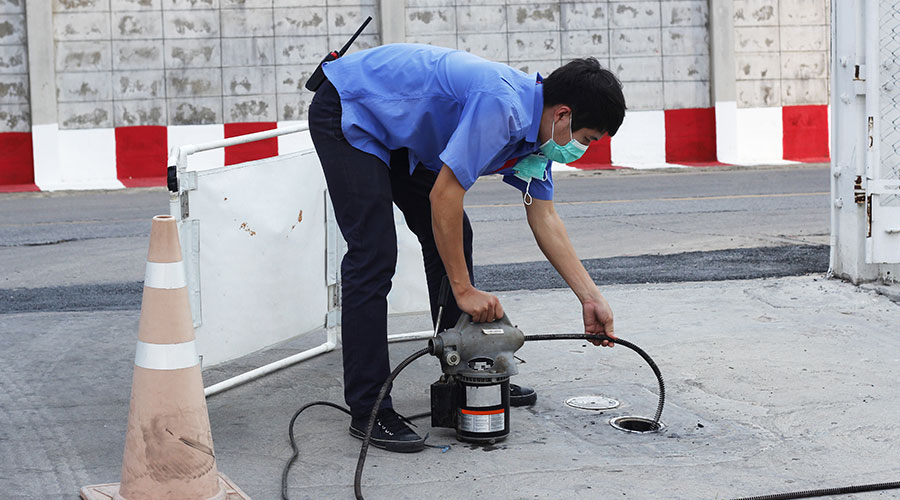« Back to Facilities Management News Home
« Maintenance & Operations
Sprinkler Pipe Fails, Floods Phoenix Library
A corroded metal fire sprinkler pipe burst this summer, causing an estimated $10 million damage to the main public library in Phoenix and closing the building until next summer.
Phoenix officials learned the hard way recently that it’s not sufficient to merely inspect fire sprinkler systems; any problems found during those inspections must be fixed.
Inspectors had noted in writing since 2014 that the 22-year-old pipe, which was made of black steel, was corroded and had pinhole leaks, but officials did not replace it or fix the problem. That led to a disaster on July 15 when a storm blew dust into the Burton Barr Central Library in downtown Phoenix and the fire prevention system sensors mistook it for smoke.
When a pre-action fire sprinkler on the fifth floor activated, the corroded pipe burst under the pressure, flooding that floor and ones below. The water damaged or destroyed more than 6,000 books and shut down the library for repairs until at least next June, according to reports.
According to published reports, an outside inspection company had warned of leaks in the system and suggested repairs, such as replacing the corroded pipe or installing a new system, but the work was never done.
Repercussions for failing to prevent the disaster have been swift. Phoenix fired three city employees, demoted two and suspended another. According to the city, those workers knew, or should have known, about leaks in the sprinkler system dating back to 2008, but failed to address the danger.
Corrosion is an ever-present problem with metal pipes of almost every kind.
Corrosion was listed by FM Approvals as the fourth-most common cause of sprinkler leakage losses from 2001-15, behind freezing, mechanical injury and defective equipment. The German fire safety firm VdS has reported that 73 percent of dry systems have significant corrosion issues at 12.5 years old and 35 percent of wet systems have significant corrosion issues at 25 years of age.
More From 11/17/2017 on FacilitiesNet







